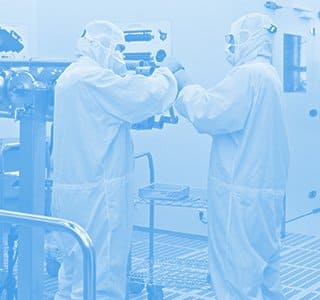
RI enters next phase in LightHouse project
RI received the order for detailed design studies and specific prototyping of the LightHouse accelerator. The LightHouse project constitutes the first industrial use of a high-power linear accelerator based on superconducting RF technology. RI experts were already involved in feasibility studies, in particular the evaluation and mitigation of the technical risks related to the project providing the basis for this next phase.
Around 30 years ago, the core team that would later found RI Research Instruments, pioneered some of the first industrial activities to develop and build superconducting accelerator cavities. It is therefore a great honor for us at RI to now get the opportunity to devote all the experience we gained, our workforce, and talent to bringing the first superconducting high-power industrial particle accelerator to life.
Goal of LightHouse is the production of 99Molybdenum (Mo-99), the world’s most used medical isotope which is an important tool in medical diagnostics and cancer treatment. This novel production method based on an electron accelerator will supersede the current way of production using nuclear reactors, which also produces high-level radioactive waste and, due to the age of the reactors, does not have a long-term perspective.
The LightHouse project is led by the Belgian Institute for Radio Elements IRE using intellectual property from the Dutch company ASML and special design and manufacturing expertise from RI Research Instruments and other companies. The project is currently in the design and development phase, with the construction of the accelerator planned to commence in 2021.
Corporate Headquarters
RI Research Instruments GmbH
Friedrich-Ebert-Straße 75
51429 Bergisch Gladbach
Germany
Tel.: +49 2204 – 7674 – 100
(New since August 2024)
Dortmund site
RI Research Instruments GmbH
Hauert 15
44227 Dortmund
Germany
Tel.: +49 2 31 – 4764 – 590
Obereschbach site
RI Research Instruments GmbH
Heinz-Fröling-Straße 3
51429 Bergisch Gladbach
Germany
Tel.: +49 2204 – 7674 – 100
(New since August 2024)

